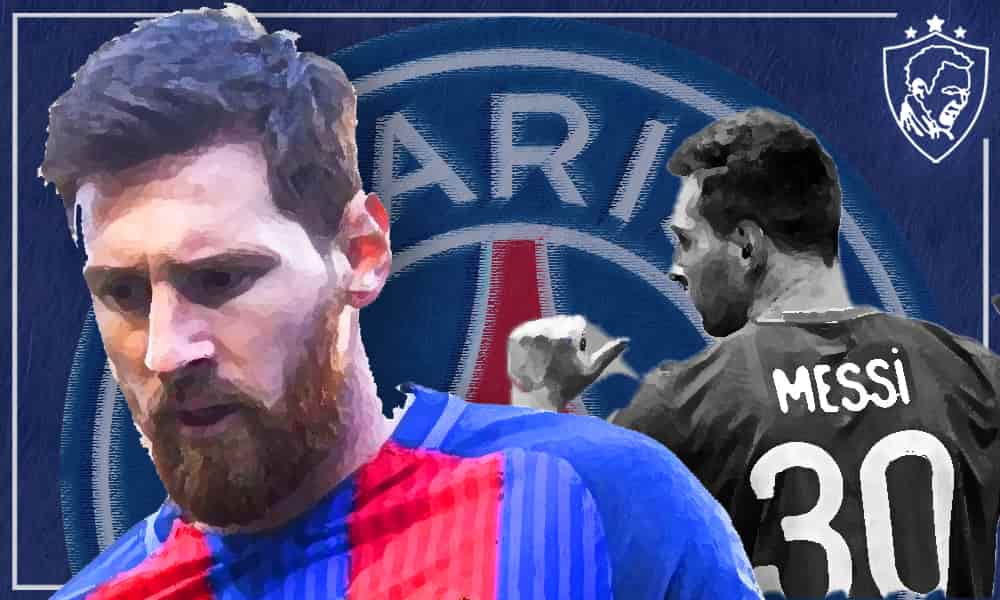It’s a sight we never thought we’d see, but probably one that was practically inevitable when you peel back the curtain at the Camp Nou.
Since his Barcelona debut in 2004, Lionel Messi has worked darn hard to form an impenetrable legacy for the Blaugrana. Amidst those fools who persist on comparing him with the greats of today or yesteryear, the football world rejoices at the emergence and development of one of its greatest employees of all times.
While there, the little Argentine hasn’t been short of making his fair share of headlines. Though where some choose to organise escorts, kick fans or otherwise bring the game into disrepute, Lionel Messi’s CV is peppered with numerous personal and team awards that most players can only dare to dream of. Ballon D’Ors, Champions Leagues, La Liga titles and even a recent Copa America win adorn the great man’s resume.
As with many (if not all) professionals, Lionel Messi’s improvement on the bigger stages led to bigger and better remuneration packages for his troubles. Such to the point where he became one of the best paid sportsmen in the world before his 30th birthday, and showed no sign of stopping on the domestic front in particular for Barcelona.
The thing is, this wasn’t so much of a problem as it appeared to directly correlate with the success his team was getting. Which worked as though he was effectively paying his own salary with the packages and rewards earned from him doing what he was getting paid to do. However, as time went on, it was clear that though his own powers might not seem to be fading, the same couldn’t be said for his Catalunyan colleagues.
During his time there – particularly under Pep Guardiola – Lionel Messi has had his fair share of top-drawer comrades. Namely, Andres Iniesta, Sergio Busquets, Luis Suarez, Xavi Hernandez, Carles Puyol … and we haven’t even reached the tip of the iceberg on this list. I’d just wanna play with one of them, tbh – would be well fun.
But having arrived on the scene a little later than them, they soon faded into the background while Messi’s own star still shone as bright as ever. So, when they departed Camp Nou or (in some cases) retired, the Barcelona hierarchy tired (and failed) to adequately replace them in order to appease their messiah.
With the greatest of respects to the likes of Dembele, Coutinho etc, it simply didn’t work out …
Eventually, the financial turmoil of the club came to the fore without the veil of success to cloud it from view. Whereby their inordinate commitment to playing astronomical player wages far exceeded their ability to remain a stable, successful commercial outfit. Keeping Lionel Messi was a big part of that success, and it took a while before they asked for some aid from their talisman in order to bring them out of the dire straights they’d gotten in to.
When they did, Messi was asked to take a 50% wage cut by the club, which he did. But even that wasn’t enough to take off the debt they’d become embroiled in. To make matters worse, wider La Liga rules (governed by Spanish law) maintained that no player (considered an employee) can sign a renewal at less than half of the previous year.
“Leo wanted to stay and the Club wanted him to stay but with the La Liga rules it has not been possible. To comply with the league’s fair play regulations we had to accept an agreement that mortgaged the Club’s TV right for half a century and FC Barcelona is above everything else.”
Joan Laporta – FC Barcelona president – explaining Lionel Messi’s departure
So, whatever way you look at it, there was no feasible way Messi could remain at Barcelona if not to the detriment of wider areas of the club. It was either to swallow the pill and let him go, or relieve other key players of their contracts and embed the club in a quagmire of issues that would long succeed the Argentine’s remaining years.
To those who think he wasn’t sincere in his parting speech, or that somehow choosing PSG is wrong – then I’d ask you to wake up and get real. The position was untenable, the offer was fair, and the stars aligned. Simple.
